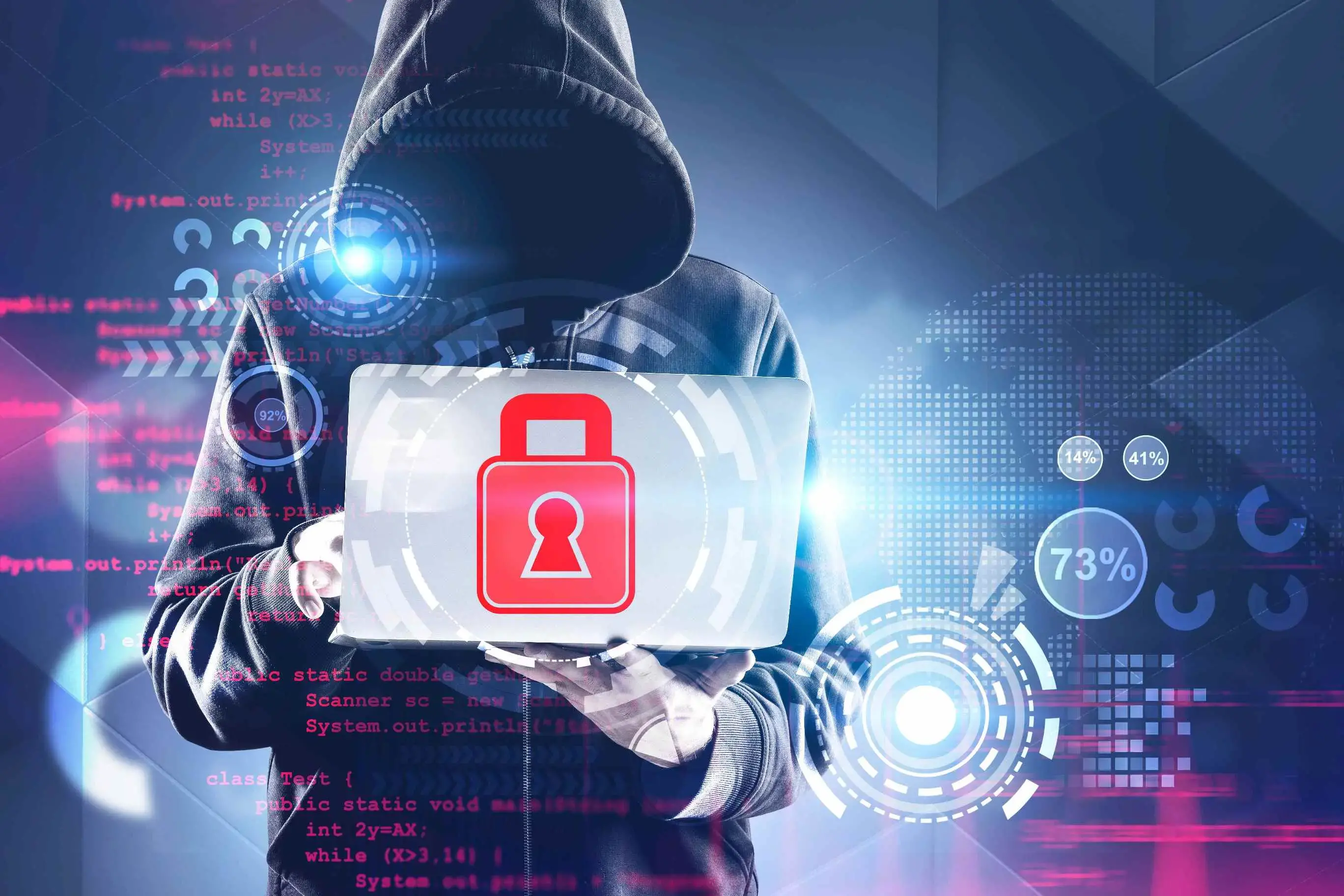Online threats are increasingly common in our digital lives. Imagine receiving a menacing message on your social media threatening to expose your private information unless you comply with demands. Online blackmail, an evolution of extortion, uses threats, coercion, or intimidation with personal information obtained through cyber means.
Online blackmail impacts people across various demographics, making it a universal threat. This article provides practical advice for navigating online blackmail, empowering readers to protect themselves effectively.
Understanding Online Blackmail
Online blackmail is the use of threats or coercion over the internet to obtain money, goods, services, or compliance from individuals by exploiting sensitive or compromising information, often through the threat of public exposure or harm to reputation.
Types of Online Blackmail
Sextortion: Sextortion involves the coercion of individuals into providing explicit content, often through blackmail threats of exposing compromising photos or videos. Perpetrators may use this content to exploit victims emotionally or financially.
Financial Extortion: Financial extortion targets individuals by threatening to expose sensitive financial information or engage in fraudulent activities unless monetary demands are met. This form exploits the fear of financial loss or reputational damage.
Reputation Damage: Threatening to tarnish an individual's reputation by exposing embarrassing or damaging information.
Data Breach Threats: Threatening to release or sell sensitive personal or business information obtained through a data breach.
Social Media Exploitation: Exploiting personal information on social media platforms to coerce individuals into compliance.
Psychology Behind Blackmail
Understanding why blackmailers target individuals is crucial to addressing this issue.
Power and Control: Blackmailers seek a sense of power and control over their victims, exploiting vulnerabilities to manipulate them into compliance.
Financial Gain: Some engage in blackmail purely for financial motives, leveraging sensitive information for monetary extortion.
Emotional Manipulation: Perpetrators may use emotional manipulation to keep victims in a state of fear, ensuring their compliance with the demands.
Revenge or Retaliation: In certain cases, individuals resort to blackmail as a form of revenge or retaliation against perceived wrongs.
Sense of Injustice: Blackmailers may harbour a sense of injustice or entitlement, believing they are justified in using coercion to achieve their objectives, whether financial or personal.
Thrill-Seeking Behaviour: For some, the act of engaging in blackmail provides a thrill or a sense of excitement. The manipulation and control exerted over others can be psychologically rewarding for those with such inclinations.
Understanding the psychological aspects of blackmail can aid in recognizing patterns and motives, allowing individuals to better protect themselves and seek appropriate legal measures against perpetrators.
Prevalence of Online Blackmail Across Industries

1. Healthcare Industry
Healthcare professionals may encounter online blackmail threats related to the exposure of sensitive patient information, compromising medical records, or tarnishing the reputation of healthcare institutions.
Striking a balance between the need for collaboration and the protection of patient data poses a unique challenge, as healthcare providers may be targeted for financial gain, and the potential harm to patients could be significant.
To address these challenges, implement stringent data protection measures, including offering cybersecurity training to healthcare staff to recognize and report threats, and establish incident response plans specific to the healthcare sector.
2. Financial Sector
Professionals in the financial sector may face threats concerning the exposure of financial transactions, insider information, or sensitive client data.
The fast-paced nature of financial transactions and the interconnectedness of global markets pose challenges in maintaining robust cybersecurity defenses, with the potential impact on financial markets adding a layer of complexity.
To address these challenges, implement multi-layered security protocols. Conduct regular cybersecurity audits to identify and address vulnerabilities promptly, and foster a culture of cybersecurity awareness among financial professionals through ongoing training programs.
3. Entertainment Industry
Professionals in the entertainment industry may encounter online blackmail threats involving leaked personal information, compromising images or videos, or attempts to damage personal and professional reputations.
The high public visibility of individuals in the entertainment industry makes them susceptible to various cyber threats such as targeted harassment and extortion attempts.
To address these risks, implement strict access controls for personal and professional online accounts, educate individuals in the entertainment industry about the dangers of social engineering and phishing attacks, and collaborate with cybersecurity experts to monitor and mitigate online threats in real time.
4. Legal Profession
Legal professionals may be targeted for threats related to the exposure of client information, confidential case details, or attempts to influence legal proceedings.
Balancing the need for transparency in legal proceedings with the protection of sensitive information creates challenges, and extortion attempts may aim to exploit this delicate balance.
Secure client information through encryption and secure communication channels, train legal professionals on cybersecurity best practices emphasizing the importance of client confidentiality and establish strict protocols for verifying the identity of individuals involved in legal communications.
5. Technology and IT Sector
Professionals in the technology and IT sector may face online blackmail threats related to intellectual property theft, disclosure of proprietary information, or attempts to disrupt critical infrastructure.
The rapidly evolving nature of technology creates challenges in staying ahead of sophisticated cyber threats, and the interconnectedness of digital systems also increases the potential impact of cyber-attacks.
To mitigate these risks, implement robust cybersecurity protocols such as regular penetration testing and vulnerability assessments. Cultivate a culture of cybersecurity awareness among technology professionals and collaborate with industry peers and cybersecurity experts to share threat intelligence and best practices.
Customizing preventive measures for professionals in diverse industries is vital for robust defenses against online blackmail. Ongoing education, collaboration, and adherence to industry-specific cybersecurity standards enhance digital resilience.
Immediate Steps to Take When Facing Online Blackmail
1. Do Not Respond or Pay
In dealing with online blackmail, never give in to the blackmailer's demands. Paying does not guarantee safety and can make the situation worse. Avoid engaging with them to prevent further threats or manipulation. It is crucial to maintain a strong stance against capitulation, prioritizing your safety and well-being.
2. Preserve Evidence
Preserve all communications, including threatening messages and emails, from the blackmailer by taking screenshots, and saving emails. This evidence is crucial if you need to involve law enforcement or take legal action, strengthening your position in addressing the situation.
3. Secure Your Accounts
Take immediate action to fortify your online defenses. Change passwords for all accounts, using strong, unique combinations. Enable two-factor authentication where possible, adding an extra layer of security.
Regularly monitor your accounts for any unauthorized activity. Securing your digital presence safeguards against immediate threats and builds a strong defense against potential future attacks.
Seeking Help in the Aftermath of Online Blackmail
1. Legal Avenues
When facing online blackmail, knowing when and how to involve law enforcement is crucial. If you feel threatened or extorted, contact your local law enforcement agency immediately.
Provide them with the evidence you have gathered, including screenshots and communication records. Familiarize yourself with the relevant cybercrime laws in your jurisdiction, as they vary.
Legal protection is a powerful tool in confronting online blackmail and holding perpetrators accountable for their actions.
2. Support Networks
You are not alone. Numerous organizations specialize in assisting victims of online blackmail. Reach out to these support networks for guidance, resources, and a community that understands the unique challenges you are facing.
Organizations such as Victim Support are dedicated to helping victims navigate the aftermath of online extortion. Connecting with others who have experienced similar situations can provide invaluable insights and emotional support.
3. Mental Health Considerations
The psychological impact of online blackmail can be profound. If you find yourself struggling emotionally, consider seeking professional counselling or therapy.
Mental health professionals can provide a safe space to process your feelings, develop coping strategies, and regain a sense of control. Taking care of your mental well-being is a crucial aspect of recovering from the trauma associated with online extortion.
Preventative Measures Against Online Blackmail
1. Digital Hygiene
Maintaining robust digital hygiene is paramount in safeguarding yourself against online threats. Adopt practices such as using strong, unique passwords, updating them regularly, and enabling two-factor authentication on all your accounts.
Regularly review and update privacy settings on social media platforms, limiting the amount of personal information accessible to the public. Be vigilant about the apps you install, ensuring they come from trusted sources.
2. Awareness and Education
Knowledge is a powerful deterrent against online blackmail. Stay informed about common blackmail schemes, such as sextortion or financial extortion. Be wary of unsolicited communications, especially those requesting sensitive information.
Educate yourself on the security features of the platforms you use and stay abreast of emerging threats. The more aware you are, the better equipped you will be to recognize and avoid potential risks.
3. Building a Support System
In times of crisis, having a reliable support system can make a significant difference. Establish a network of trusted friends, family members, or colleagues who can offer immediate assistance if you ever face online blackmail.
Share your concerns openly with them, and make sure they are aware of the potential risks. A supportive network can provide emotional strength, guidance, and practical help when needed.
Conclusion
Dealing with online blackmail can be distressing, but approach the situation calmly and take appropriate steps to protect yourself. In the aftermath of an online blackmail attempt, remain vigilant about your online presence.
Continuously assess and update your privacy settings on social media platforms, be cautious about sharing personal information online, and scrutinize friend requests or communication from unknown sources. A proactive approach to online security is key to preventing recurrence.
To those navigating the challenges of online blackmail, remember that you are not alone. The strategies shared in this article are tools of empowerment.
In the face of adversity, your resilience, coupled with informed and decisive action, can be a beacon of strength. Reach out for help, lean on your support system, and know that recovery is possible. By joining forces, sharing experiences, and staying vigilant, we can collectively combat online blackmail and create a safer online space for everyone.
Frequently Asked Questions
Why is online blackmail a relevant issue in today's digital age?
Online blackmail is relevant today due to our increasing reliance on digital platforms. As we share more personal information online, the risk of exploitation grows. Blackmailers exploit this vulnerability, making it essential to address this issue in the digital age.
Why do blackmailers target individuals, and how does it affect the victims psychologically?
Blackmailers target individuals for financial gain, revenge, or a desire for power. The psychological impact on victims can be severe, leading to anxiety, shame, and fear of social stigma. Understanding these motives is crucial in addressing the emotional toll on victims.
Why should victims not respond to or pay the blackmailer's demands, and what are the risks involved?
Complying with demands poses risks as it may not guarantee safety, and it often emboldens the blackmailer. It can also escalate the situation, leading to further threats or manipulation. Non-compliance is crucial to protecting oneself and avoiding potential escalation.
Why is preserving evidence crucial in dealing with online blackmail?
Preserving evidence, including screenshots and communication records, is vital for legal recourse and building a case against the blackmailer. Comprehensive documentation strengthens the victim's position and aids law enforcement in taking appropriate action.
When should victims involve law enforcement in cases of online blackmail, and what legal protections are available?
Victims should involve law enforcement when they feel threatened. Reporting promptly is essential. Legal protections vary, but cybercrime laws often provide a framework for addressing online blackmail.
How should victims address the psychological impact of online blackmail, and why is professional counselling recommended?
Victims can address the psychological impact by seeking professional counselling or therapy. Professional help provides a safe space to process feelings, develop coping strategies, and regain a sense of control. Mental health support is crucial for recovery.
Why is awareness and education about common blackmail schemes important in preventing victimization?
Awareness and education empower individuals to recognize and avoid common blackmail schemes. Being informed about the tactics used by perpetrators is crucial for preventing victimization and fostering a proactive approach to online safety.
How can individuals build a support system to assist them in crises related to online blackmail?
Individuals can build a support system by establishing a network of trusted friends, family, or colleagues. Open communication about potential online threats, sharing concerns, and educating the support system on common online risks enhance its effectiveness during crises.

Yetunde Salami is a seasoned technical writer with expertise in the hosting industry. With 8 years of experience in the field, she has a deep understanding of complex technical concepts and the ability to communicate them clearly and concisely to a wide range of audiences. At Verpex Hosting, she is responsible for writing blog posts, knowledgebase articles, and other resources that help customers understand and use the company's products and services. When she is not writing, Yetunde is an avid reader of romance novels and enjoys fine dining.
View all posts by Yetunde Salami




















